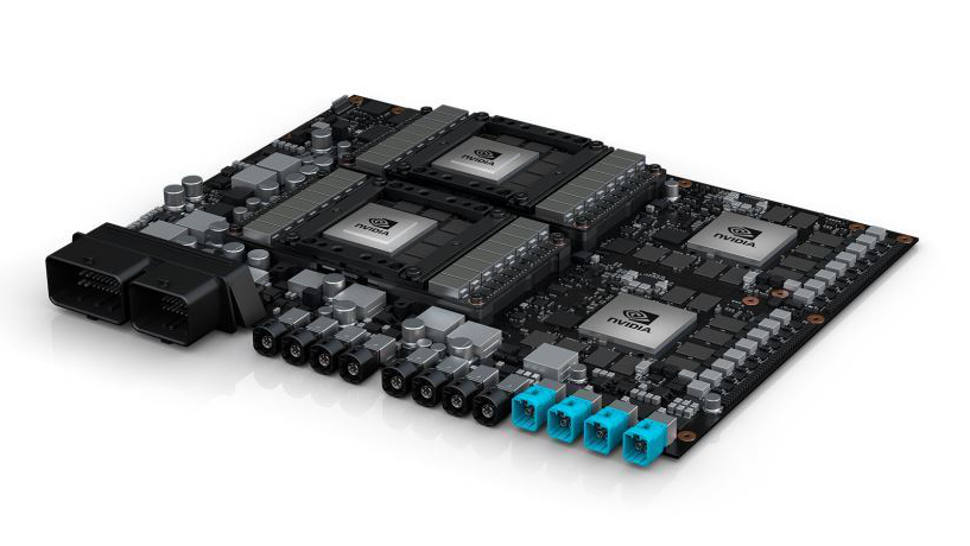Nvidia wants you to jump into a taxi driven by AI
Say hello to your computer chauffeur: Drive PX Pegasus

Nvidia has revealed a new AI computer that’s designed to make fully autonomous ‘robotaxis’ a reality.
Nvidia’s Drive PX Pegasus computing platform represents a massive leap over its predecessor (the PX 2) and is no less than 10 times as fast, and fully capable of handling a mind-boggling 320 trillion operations per second.
That’s enough to allow it to operate a ‘level 5’ driverless vehicle, a fully autonomous car with no need for any pedals or even a steering wheel – these vehicles will be like an office pod (or mobile living room) whisking you to work (and letting you work during your commute).
Nvidia notes that Pegasus has to be so powerful because the demands of fully driverless navigation are obviously highly exacting, and include scoping out the environment using 360-degree surround cameras, radars and lidars. And of course massive levels of redundancy have to be built-in to ensure safe operation.
- Black Friday will see plenty of bargains when it comes to computers

Never tired, never distracted
Nvidia argues that “countless lives will be saved by vehicles that are never fatigued, impaired or distracted – increasing road safety, reducing congestion and freeing up valuable land currently used for parking lots.”
Some 225 partners are developing on the Drive PX platform, with Nvidia estimating that in excess of 25 of these companies are working on fully autonomous robotaxis employing Nvidia CUDA GPUs.
Luca De Ambroggi, senior principal automotive analyst at IHS Markit, commented: “Today dozens of companies are racing to develop robotaxis, but they are still gated by the massive computation needs of a truly driverless car. The new Nvidia Drive PX Pegasus shows the path to production for the automakers, startups and automotive ecosystem working to deliver this amazing vision.”
Sign up to the TechRadar Pro newsletter to get all the top news, opinion, features and guidance your business needs to succeed!
- Boost your productivity with our best business laptops
Darren is a freelancer writing news and features for TechRadar (and occasionally T3) across a broad range of computing topics including CPUs, GPUs, various other hardware, VPNs, antivirus and more. He has written about tech for the best part of three decades, and writes books in his spare time (his debut novel - 'I Know What You Did Last Supper' - was published by Hachette UK in 2013).